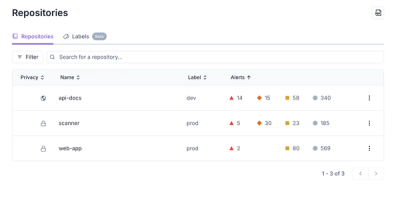
Product
A New Design for GitHub PR Comments
We redesigned our GitHub PR comments to deliver clear, actionable security insights without adding noise to your workflow.
Tiny module wrapping try/catch in JavaScript.
It's literally 11 lines of code, just read it that's all the documentation you'll need.
npm install tryit
What you'd normally do:
try {
dangerousThing();
} catch (e) {
console.log('something');
}
With try-it (all it does is wrap try-catch)
var tryit = require('tryit');
tryit(dangerousThing);
You can also handle the error by passing a second function
tryit(dangerousThing, function (e) {
if (e) {
console.log('do something');
}
})
The second function follows error-first pattern common in node. So if you pass a callback it gets called in both cases. But will have an error as the first argument if it fails.
Primary motivation is having a clean way to wrap things that might fail, where I don't care if it fails. I just want to try it.
This includes stuff like blindly reading/parsing stuff from localStorage in the browser. If it's not there or if parsing it fails, that's fine. But I don't want to leave a bunch of empty catch (e) {} blocks in the code.
Obviously, this is useful any time you're going to attempt to read some unknown data structure.
In addition, my understanding is that it's hard for JS engines to optimize code in try blocks. By actually passing the code to be executed into a re-used try block, we can avoid having to have more than a single try block in our app. Again, this is not a primary motivation, just a potential side benefit.
FAQs
Module to wrap try-catch for better performance and cleaner API.
We found that tryit demonstrated a not healthy version release cadence and project activity because the last version was released a year ago. It has 1 open source maintainer collaborating on the project.
Did you know?

Socket for GitHub automatically highlights issues in each pull request and monitors the health of all your open source dependencies. Discover the contents of your packages and block harmful activity before you install or update your dependencies.

Product
We redesigned our GitHub PR comments to deliver clear, actionable security insights without adding noise to your workflow.

Product
Our redesigned Repositories page adds alert severity, filtering, and tabs for faster triage and clearer insights across all your projects.

Security News
Slopsquatting is a new supply chain threat where AI-assisted code generators recommend hallucinated packages that attackers register and weaponize.